Iran, Pakistan urge UNSC to hold Israel accountable for atrocities
Iran and Pakistan have called on the United Nations Security Council to hold the Israeli regime accountable for its acts of atrocity across West Asia, notably its attacks on diplomatic missions and the territory of regional countries.
The call was made in a joint statement culminating Iranian President Ebrahim Raeisi’s three-day visit to Pakistan.
“Recognizing that the irresponsible act of the Israeli regime forces was a major escalation in an already volatile region, both sides called on the UN Security Council to end Israel’s adventurism in the region,” the joint statement said.
The statement was referring to Israel’s attack on the Iranian embassy in Damascus on April 1, which killed seven Iranian military advisors, among others.
On April 13, Iran launched a barrage of missiles and drones at Israel in retaliation for the deadly Damascus strike.
During his visit to Pakistan, President Raeisi warned any Israeli attack on Iranian territory could radically change the dynamics and result in there being nothing left of the Zionist regime.
The joint statement also censured the crimes of Israel in Gaza. Tehran and Islamabad expressed their “strong and unequivocal condemnation of the ongoing Israeli aggression against the Palestinian people.”
The statement also called for an immediate and unconditional ceasefire in Gaza and unimpeded humanitarian access to the besieged people.
Two sides to finalize Free Trade Agreement (FTA)
The joint declaration reminisced about the dialogues and assemblies that took place during Raeisi’s stay in Pakistan, noting that both parties “reviewed the entire spectrum of Pakistan-Iran relations.”
The two neighboring countries concurred to “enhance mutual interaction through the regular exchange of high-level visits.”
The statement stressed the need to expand commercial and economic cooperation and to “expeditiously finalize” a Free Trade Agreement aimed at boosting bilateral trade to 10 billion dollars over the next five years.
In the joint statement, both nations expressed determination to transform the common border into “a corridor of prosperity,” highlighting plans for joint economic projects, the establishment of economic free zones, and the facilitation of border trade.
Tehran and Islamabad reiterated their commitment to key energy projects such as the Iran-Pakistan Gas Pipeline Project.
Trade in electricity and power transmission lines was also underscored by the two sides.
The nations articulated a unanimous decision to make the barter trade mechanisms between them fully functional to aid economic and commercial endeavors, as per the countries’ announcement.
Iran and Pakistan “expressed satisfaction at the close and cooperative relations in all mechanisms” associated with the Shanghai Cooperation Organisation (SCO), emphasizing the significance of promptly resuming the activities of the SCO-Afghanistan Contact Group.
Both parties also advocated vigorous collaboration among the nations in the region under the auspices of the Economic Cooperation Organisation (ECO).
Call for closer anti-terror cooperation
The joint declaration highlighted the consensus between Iran and Pakistan on various initiatives to counteract terrorism.
Acknowledging that terrorism “posed a common threat to regional peace and stability and presented a major impediment to the development of the region,” both nations concurred to “adopt a collaborative approach to confront this menace […] while fully upholding the principles of the UN Charter.”
“Both sides reaffirmed their commitment to the development of Afghanistan as a peaceful, united, sovereign and independent state, free from the threats of terrorism and drug trafficking.”
Emphasizing the need for joint regional and international endeavors to maintain security and stability, Iran and Pakistan “recognized that increasing participation of all strata of Afghans in basic decision-making will lead to the strengthening of peace and stability in this country.”
Iran and Pakistan also agreed to release each other’s prisoners and take measures for their extradition based on the Treaty for the Extradition of Criminals and the Accused signed in 1960 and the Agreement on the Transfer of Convicts approved in 2016.
Moreover, Iran and Pakistan denounced “rising incidents of Islamophobia, desecration of the Holy Quran and sacred symbols in some countries.”
The two countries hailed the passage of the United Nations General Assembly resolution Measures to Combat Islamophobia in March.
Raeisi wrapped up his visit to Pakistan and flew on to Sri Lanka on Wednesday.
IRGC warship sails into Southern Hemisphere for first time
VIDEO | People protest outside US embassy in Burkina Faso over interference
Pentagon shifts jets to Qatar after UAE bans use of base for strikes: WSJ
UCL campus protests
ICC slams threats after broaching arrest warrants for Israeli leaders
Russia warns West on ‘dangerous’ escalation of tensions in Ukraine war
Do not underestimate Hezbollah’s ability to harm Israel: Senior official
Canada nabs three Indians over assassination of Sikh leader


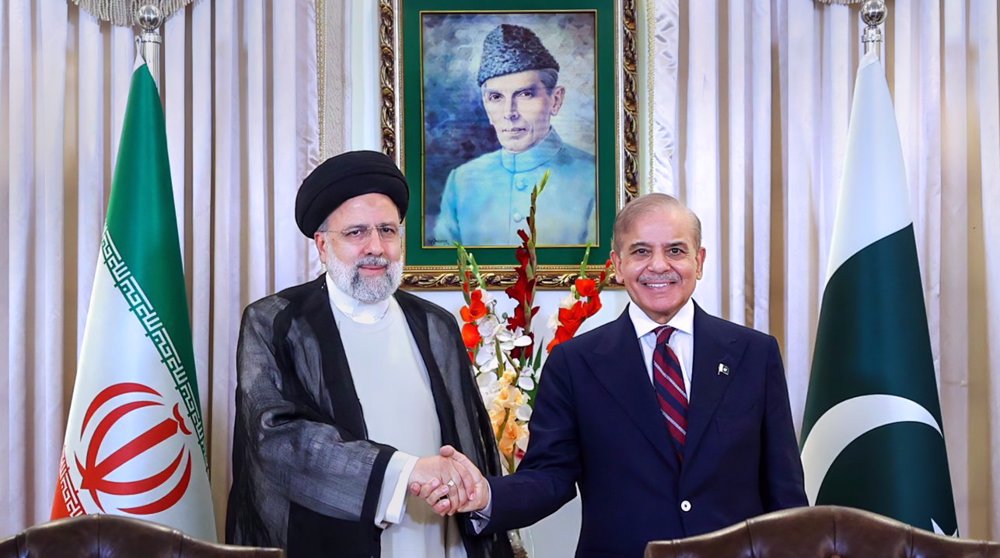
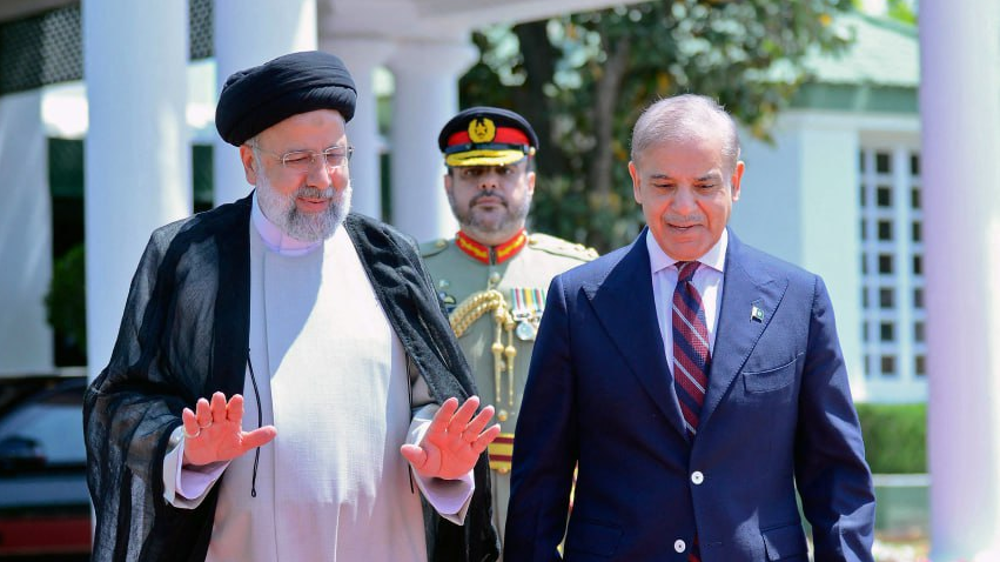
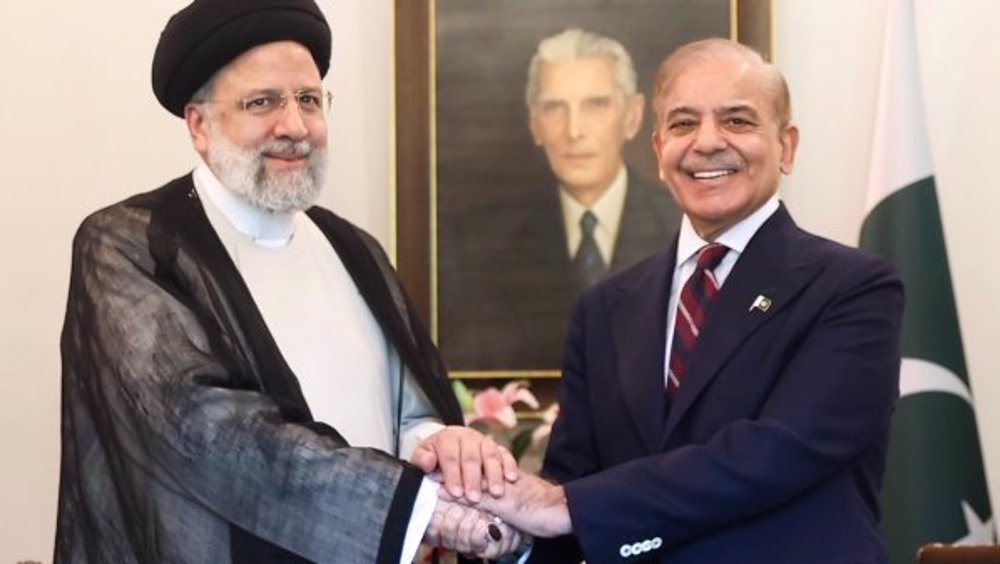

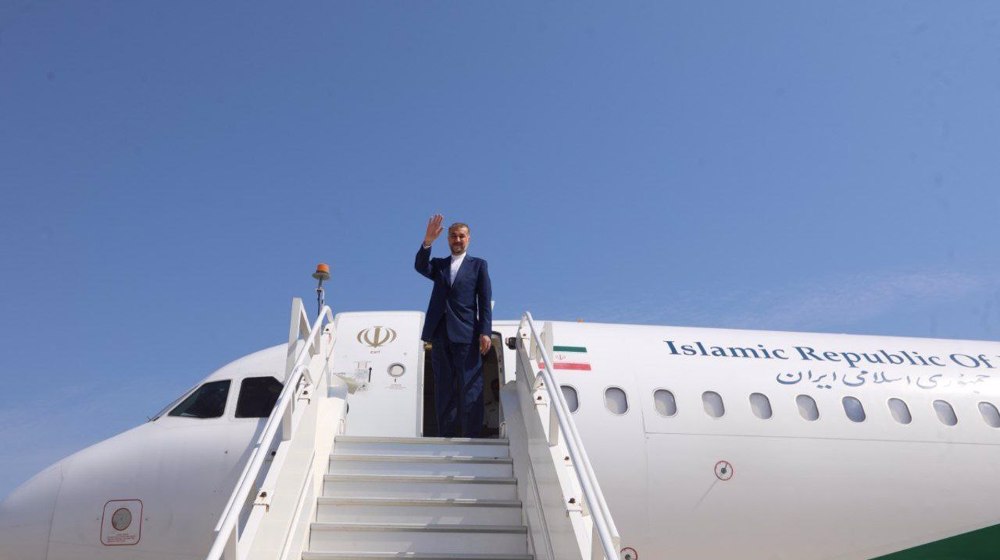
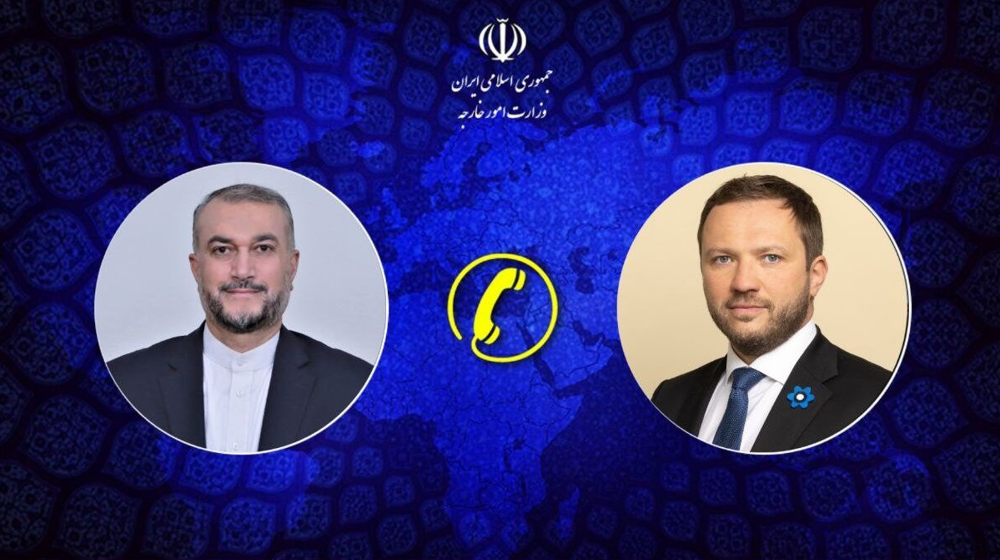



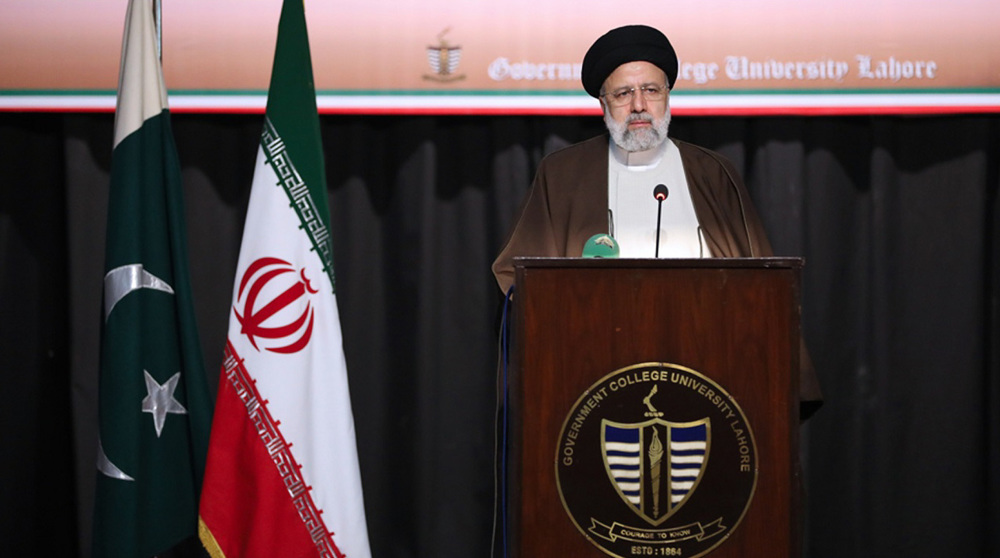
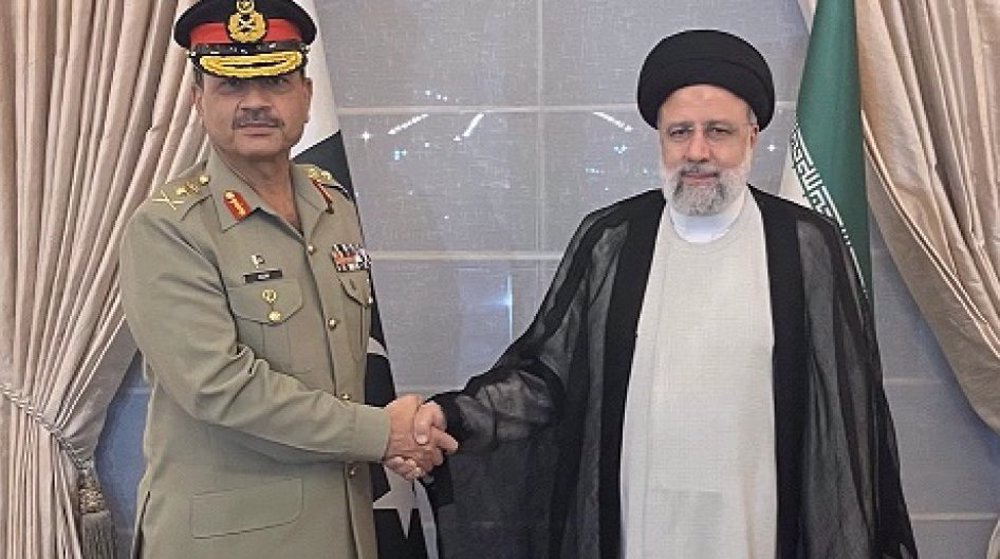
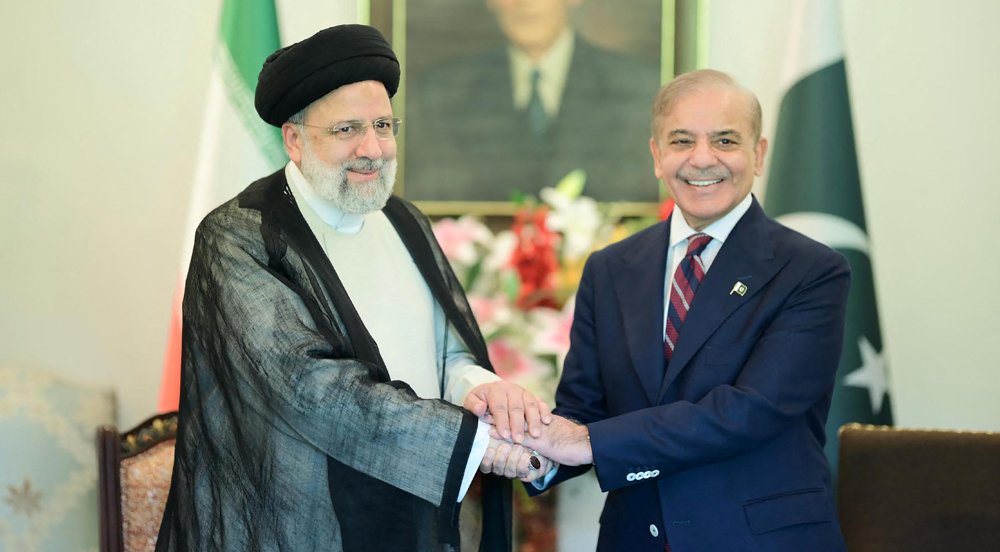
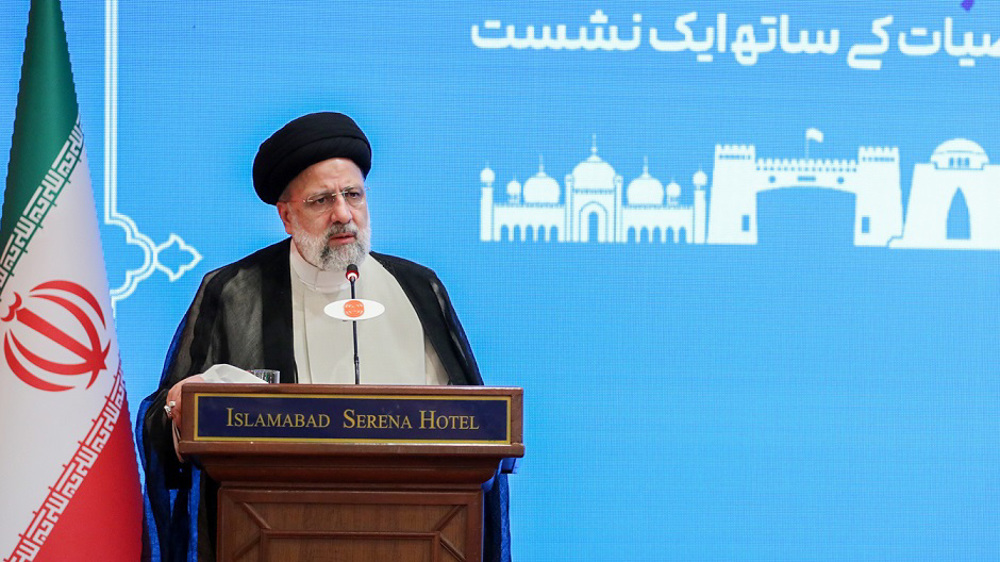

 This makes it easy to access the Press TV website
This makes it easy to access the Press TV website